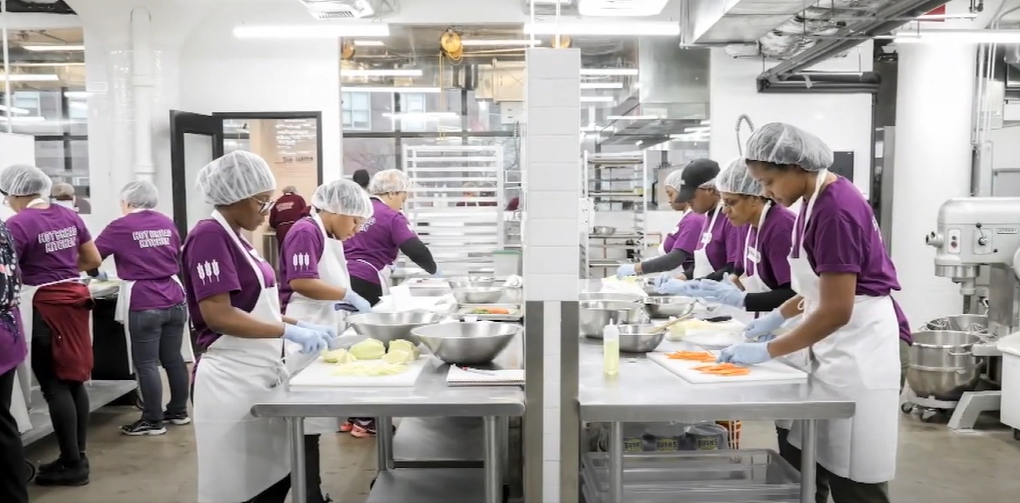City Harvest in Brooklyn is hosting the five-week course “Culinary Career Pathways for New New Yorkers” that was launched in April by the nonprofit group Hot Bread Kitchen, which trains New Yorkers for jobs in the food industry.
The course is patterned after the organization’s signature Culinary Fundamentals course, but it has an important twist: It was designed specifically for newly arrived Latin American migrants who have secured work permits and set their sights on careers in the food industry. As is well-known, Latinos are the backbone of restaurant work, they constitute nearly 33% of hospitality jobs.
“Without immigration, the U.S. labor market would be in deep trouble, because native workers are not able to fill job openings,” said Zeke Hernandez, a professor at the University of Pennsylvania’s Wharton School of Business.
“Native workers and businesses would both be significantly worse off without immigrants in the labor market,” Hernandez said. “It’s not just that foreign-born people fill job vacancies. It’s much more than that. Many jobs can’t be done unless there’s a minimum number of people to do them.”
In the last two years, more recently arrived migrants are receiving work authorizations. This not only helps them but helps the New York—and by extension, the American– economy.
The program at Hot Bread Kitchen has received funding from private donors, from the Robin Hood Foundation and also benefited from $250,000 from the state labor department. Officials estimate that more than 40,000 job opportunities are available to asylum-seekers and migrants at more than 1,000 businesses statewide, with more than a fifth in food and hospitality.
“Migrants and asylum-seekers came here to work, so let’s put them to work,” Gov. Kathy Hochul said in October.
The Hot Bread Kitchen is a place where dreams can come true. For 33-year-old Jesus Gonzalez, the program is an opportunity for a fresh start. He fled Venezuela after having experienced crushing personal loss, and then found himself homeless on the streets of Colombia. He eventually found his way to New York and now stays in a shelter in Jamaica, Queens, with his wife and daughter.
“My ultimate goal is to have my own restaurant, ideally a pizzeria, and employ lots of people who need jobs,” he said.
Hot Bread Kitchen’s CEO Leslie Abbey said the organization found its students through referrals from other nonprofits. The class initially comprised 18 students, two dropped out due to “family care conflicts.” The organization provides students with $150 weekly stipends and child care assistance in order to make it possible for them to continue in the program. The group plans to train three more cohorts this year.
Hot Bread Kitchen’s CEO Leslie Abbey said, “With the right training and the right connections and some social capital, we can place people very quickly into jobs”.
“And the food industry offers many opportunities for advancement. After that first job, there are many pathways to grow careers to become managers, team leads, sous chefs and more,” she added.
The program benefits from Hot Bread Kitchen’s ties to the hospitality industry, including the José Andrés Group and Restaurant Associates, which is not only a highly successful restaurant group, but also a global humanitarian aid delivery program.
For some of the students, the course is the closest thing to a direct path out of hardship and into financial autonomy. The program’s supporters say that graduates emerge from the course with the skills necessary to of finding a fulltime job in the city’s restaurant industry and then climbing up the ranks.
“The restaurant industry as a whole is always hiring,” said Andrew Rigie, the executive director of the NYC Hospitality Alliance, “and workers come and go, so there’s always a general need” for new employees.
At the end of March, there were 1 million job openings in the combined restaurant and accommodation category, according to data from the Bureau of Labor Statistics.












